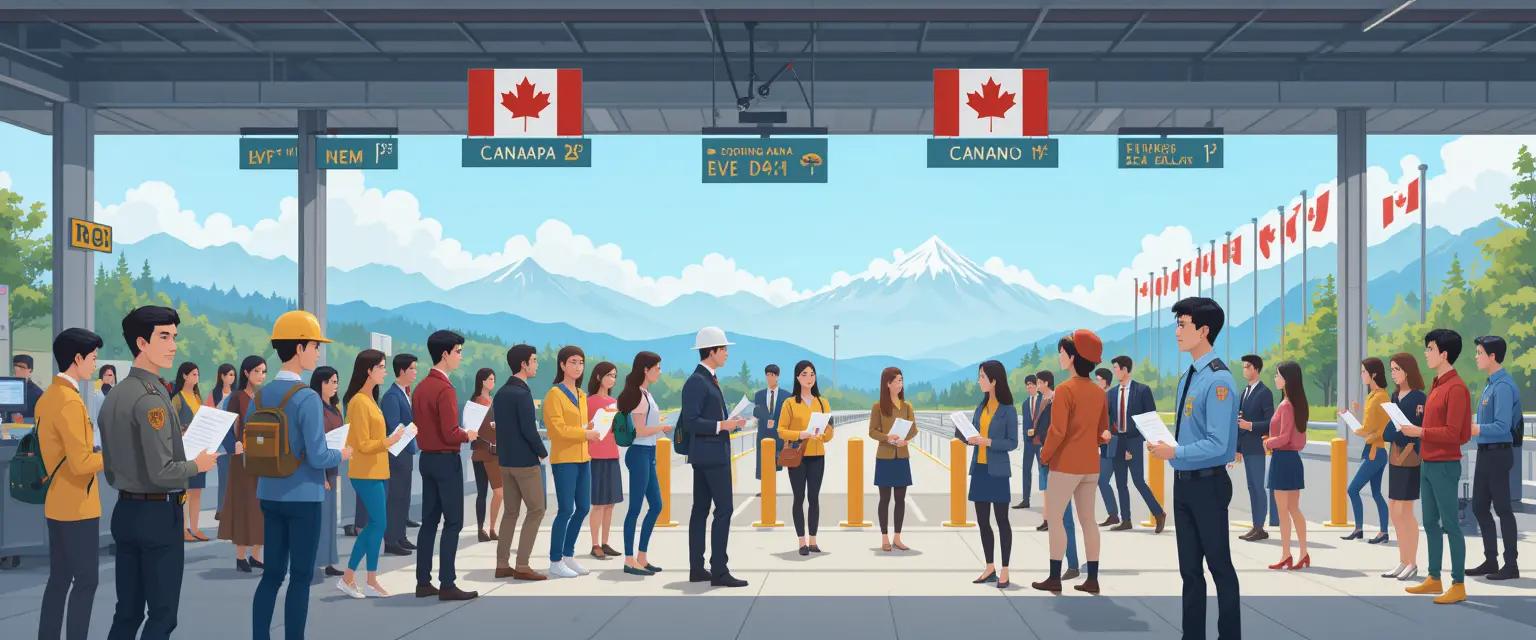Has Ontario Reached Its 2024 PNP Allocation Limit? Key Insights for Applicants
Ontario’s Provincial Nominee Program (PNP) is one of Canada’s most sought-after immigration pathways, offering opportunities for skilled workers, students, and entrepreneurs to secure permanent residency. However, recent developments have left many applicants wondering whether Ontario has already reached its PNP allocation limit for 2024—and what it means for their immigration plans.
Understanding Ontario’s PNP Allocation System
Each year, Ontario receives a set number of PNP nominations from Immigration, Refugees, and Citizenship Canada (IRCC). This quota determines how many applicants Ontario can nominate for permanent residency. For 2024, Ontario was allocated 21,500 nominations, one of the largest quotas among provinces, reflecting its popularity as a destination for immigrants.
Despite this generous allocation, the high volume of applications and increasing demand for Ontario’s PNP have resulted in the province reaching its limit earlier than anticipated. Once the quota is exhausted, no new nominations can be issued until the following year, leaving applicants to consider alternative options or wait for the next cycle.
Additionally, Ontario issued over 22,000 Invitations to Apply (ITAs) across various streams in 2024. These were distributed as follows:
- Employer Job Offer: Foreign Worker Stream: 6,695 ITAs
- Employer Job Offer: International Student Stream: 8,363 ITAs
- Employer Job Offer: In-Demand Skills Stream: 914 ITAs
- Masters Graduate Stream: 5,519 ITAs
- PhD Graduate Stream: 533 ITAs
- Entrepreneur Stream: 0 ITAs
Impact on Applicants
Reaching the allocation limit has significant implications for prospective immigrants:
- Pending Applications: If you’ve already submitted your PNP application, it will still be processed. However, approvals may be delayed, and some cases might roll over into the next year’s quota.
- New Applications: Those planning to apply to Ontario’s PNP in 2024 may now need to wait until 2025 or consider other immigration pathways.
- Increased Competition Elsewhere: With Ontario out of the running for the remainder of the year, other provincial programs are likely to see a surge in applications, making them more competitive.
For instance, a software developer like Mr. X, who had planned to apply through Ontario’s Human Capital Priorities Stream, now faces uncertainty. Without a clear alternative, Mr. X could risk delaying his immigration process, affecting his career and financial plans.
Your Options Moving Forward
Reaching the allocation limit doesn’t mean the end of the road. Here are actionable steps to keep your immigration plans on track:
1. Explore Alternative Provinces
Canada offers several other provincial programs tailored to skilled workers, entrepreneurs, and international students. Provinces like Alberta, Saskatchewan, and British Columbia have robust PNPs that could be a good fit for your profile.
2. Improve Your Express Entry Profile
Boosting your Comprehensive Ranking System (CRS) score can improve your chances of receiving an Invitation to Apply (ITA) through Canada’s Express Entry system. Focus on enhancing language test scores, obtaining additional education, or securing a valid job offer in Canada.
3. Seek Professional Guidance
Immigration pathways can be complex, especially when policies and quotas change. Consulting with a regulated immigration expert like Sayal Immigration can help you identify the best strategies for your unique situation. As a leading immigration consultant in Canada, Sayal Immigration offers personalized guidance tailored to your needs.
Case Study: How Expert Guidance Made a Difference
When Mr. X learned about Ontario’s 2024 PNP allocation limit, he felt his dreams of immigrating to Canada were slipping away. He turned to Sayal Immigration, recognized as a top immigration consultant in Canada, for assistance.
After a thorough assessment, Sayal Immigration recommended that Mr. X apply through Alberta’s Express Entry Stream, where his skills as a software developer were in high demand. With their guidance, he submitted a strong application and received his nomination within months, allowing him to continue his journey toward permanent residency without unnecessary delays.
What Happens to Pending Applications?
If you’ve already submitted your PNP application to Ontario, rest assured that it will still be processed. However, with the allocation exhausted, approvals may take longer than usual.
The IRCC and Ontario’s immigration authorities will prioritize complete and accurate applications, so ensuring your documentation is in order is essential. For those who applied late in the year, there’s a chance your application might roll over into the 2025 quota.
Anticipated Reductions in 2025
Looking ahead, Ontario’s PNP allocations are expected to decrease in 2025. The IRCC’s Immigration Levels Plan has halved the total provincial admissions targets from 110,000 in 2024 to 55,000 in 2025. This will likely impact the OINP’s future quotas and increase competition further.
The closure of Ontario’s Entrepreneur Stream in 2024 is another significant change, limiting opportunities for those seeking entrepreneurial pathways in the province.
Why Ontario’s PNP Is So Popular
Ontario’s PNP has consistently attracted the highest number of applicants due to its targeted streams like:
- Human Capital Priorities Stream: Designed for skilled workers with a valid Express Entry profile.
- Employer Job Offer Stream: For individuals with a job offer from an Ontario employer.
- Masters and Ph.D. Graduate Streams: Catering to recent graduates from Ontario universities.
These streams provide a direct pathway to permanent residency, making Ontario a top choice for newcomers to Canada. However, the popularity of the program also means increased competition and faster exhaustion of quotas.
How to Prepare for 2025
While the 2024 quota is closed, the next cycle will bring new opportunities. Start preparing now to ensure your application is ready when Ontario reopens its PNP streams:
- Gather Required Documents: Ensure all your paperwork, including education credentials, language test results, and job offers, is up to date.
- Monitor Updates: Stay informed about Ontario’s PNP announcements through trusted sources like the Government of Ontario website.
- Seek Expert Support: With Sayal Immigration, a trusted immigration consultant in Toronto and immigration consultant in Brampton, you can craft a winning strategy to secure your nomination in 2025.
Book an Appointment with Sahil for any Immigration related Queries
Final Thoughts
Ontario reaching its 2024 PNP allocation limit highlights the competitive nature of Canada’s immigration system. While this may feel like a setback, it’s also an opportunity to explore alternative pathways and strengthen your profile for future applications.
By staying informed and working with experts like Sayal Immigration, you can navigate these challenges confidently and achieve your dream of settling in Canada.
Don’t let this roadblock stop you—take control of your immigration journey today.







